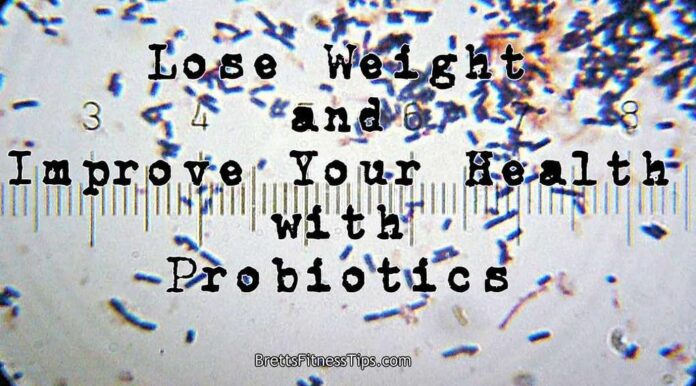
In recent years, there has been a growing awareness of the importance of gut health and its impact on overall well-being. This has led to an increased interest in probiotics, which are beneficial bacteria that can help support and improve gut health. Probiotics have been shown to have a wide range of health benefits, from improving digestion to boosting the immune system. In this article, we will explore the power of probiotics and how they can positively impact your overall well-being.
What are Probiotics?
Probiotics are live bacteria and yeasts that are good for your health, especially your digestive system. We often think of bacteria as something harmful, but our bodies are actually full of both good and bad bacteria. Probiotics are the good bacteria that help keep the gut healthy by fighting off bad bacteria and maintaining a balance in the digestive system.
Probiotics can be found in certain foods, such as yogurt, kefir, sauerkraut, and kimchi, as well as in supplement form. There are many different strains of probiotics, with each strain having unique health benefits. Some of the most common strains include Lactobacillus and Bifidobacterium.
How Probiotics Impact Gut Health
The gut is home to trillions of bacteria, both good and bad, that play a crucial role in our health. When the balance of bacteria in the gut is disrupted, it can lead to a variety of health issues, including digestive problems, inflammation, and weakened immune function. Probiotics help restore the balance of good bacteria in the gut, which can improve digestion, boost the immune system, and reduce inflammation.
One of the key ways that probiotics impact gut health is by promoting the growth of beneficial bacteria in the gut. This can help improve overall digestion and nutrient absorption, as well as reduce symptoms of digestive disorders such as irritable bowel syndrome (IBS) and inflammatory bowel disease (IBD).
Probiotics also play a role in modulating the immune system, which is closely linked to gut health. About 70% of the immune system is located in the gut, so maintaining a healthy balance of bacteria is essential for a strong immune response. Probiotics help support the immune system by regulating inflammation and promoting the production of antibodies that fight off harmful pathogens.
In addition to supporting digestion and immunity, probiotics can also have a positive impact on mental health. The gut-brain axis is a complex communication network between the gut and the brain, and growing research suggests that gut health may influence mood, cognition, and behavior. Probiotics have been shown to have antidepressant and anxiolytic effects, as well as improve cognitive function.
The Benefits of Probiotics for Overall Well-being
The benefits of probiotics extend far beyond gut health, impacting many aspects of overall well-being. Here are some of the ways in which probiotics can improve your health:
1. Digestive Health: Probiotics can help alleviate symptoms of digestive disorders such as IBS, constipation, and diarrhea by restoring the balance of bacteria in the gut.
2. Immune Function: Probiotics help support the immune system by promoting the growth of beneficial bacteria in the gut and regulating inflammation.
3. Mental Health: Probiotics have been shown to have a positive impact on mental health by improving mood, cognition, and behavior.
4. Skin Health: Some studies suggest that probiotics may help improve skin conditions such as acne, eczema, and rosacea by reducing inflammation and promoting healthy bacteria in the gut.
5. Weight Management: Probiotics may help support weight loss and reduce body fat by promoting the growth of beneficial bacteria in the gut and improving metabolism.
How to Incorporate Probiotics into Your Diet
There are many ways to incorporate probiotics into your diet to support gut health and overall well-being. Here are some tips for adding more probiotic-rich foods to your meals:
1. Eat More Fermented Foods: Fermented foods are rich in probiotics and can help support gut health. Include foods such as yogurt, kefir, sauerkraut, kimchi, and miso in your diet.
2. Take Probiotic Supplements: If you have trouble getting enough probiotics from food, consider taking a probiotic supplement. There are many different strains and formulations available, so it’s important to choose the right one for your needs.
3. Avoid Antibiotics When Possible: Antibiotics can kill off both good and bad bacteria in the gut, so try to avoid them when possible. If you do need to take antibiotics, consider taking a probiotic supplement to help restore the balance of bacteria in the gut.
4. Limit Sugar and Processed Foods: Sugar and processed foods can feed bad bacteria in the gut, so try to limit your intake of these foods and focus on eating a diet rich in fruits, vegetables, whole grains, and lean proteins.
In conclusion, the power of probiotics cannot be understated when it comes to supporting gut health and overall well-being. Probiotics have a wide range of health benefits, from improving digestion and supporting immune function to promoting mental health and weight management. By incorporating probiotic-rich foods into your diet and taking a quality probiotic supplement, you can help support the balance of bacteria in your gut and improve your overall health. As always, it’s important to consult with a healthcare professional before making any changes to your diet or supplementation routine.


















